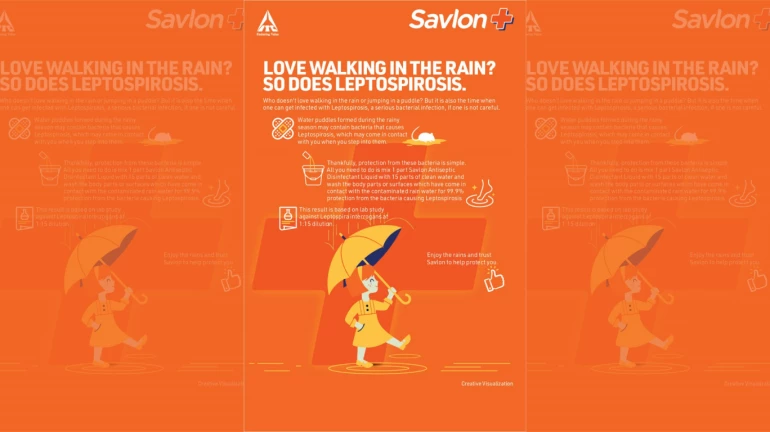
Monsoon brings with it a multitude of waterborne illnesses, prompt diagnosis and timely treatment of which is extremely important. Communicable diseases triggered by sudden changes in the weather like the common cold, cough, malaria, dengue, diarrhoea, and pneumonia are some of the diseases which make it to the top of the list. But one of the common diseases, especially in areas prone to flooding and waterlogging is Leptospirosis.
Also Read: Amidst monsoons, BMC issues advisory on leptospirosis
Medical experts across the world warn about the spread of Leptospirosis, a bacterial infection that spreads during the monsoon season given its impact on both health and life. A severe health problem in the coastal areas such as Mumbai, Kerala, Tamil Nadu, Gujarat, and West Bengal, the disease is associated with both morbidity and mortality. To address the growing number of cases across, state and municipal corporations of different states issue advisories every year to prevent and control its spread.
But before we tackle it, it’s crucial to understand the causes, symptoms, and transmission.
What is Leptospirosis?
Leptospirosis is a waterborne bacterial infection that comes from animal urine and faeces that contaminates soil, water, and vegetation. According to the Center for Disease Control and Prevention (CDC), it is caused by Leptospira spirochete bacteria, and its mode of transmission includes ingesting contaminated food or water, or when broken skin, mucous membranes, or open wounds are exposed. The incubation period of this disease is between 7-10 days.
Signs and Symptoms
Common symptoms of leptospirosis include fever, headache, body rashes, vomiting, and abdominal misfunctioning, all of which can be treated using antibiotics prescribed by dermatologists and physicians. Though, the CDC suggests that if the disease is left untreated, it can damage the kidneys and cause liver failure or meningitis.
Necessary precautions
One of the best ways to prevent getting the disease is to avoid walking through stagnant water. In case one is required to step out, wearing closed footwear, especially rubber boots, waterproof gloves and masks are advisable. Sealing holes and cracks in your homes can also help deter rodent access.
After returning home, washing arms and legs thoroughly is recommended. In case people have waded through contaminated waters which could be contaminated, senior doctors and medical experts suggest using antiseptic liquids such as Savlon Antiseptic Disinfectant Liquid which has been clinically tested & is proven to be 99.9% protection against bacteria causing Leptospirosis. Diluting the Savlon antiseptic liquid to clean body parts, especially hands and legs that have been exposed to the bacteria can help in prevention and protection.




